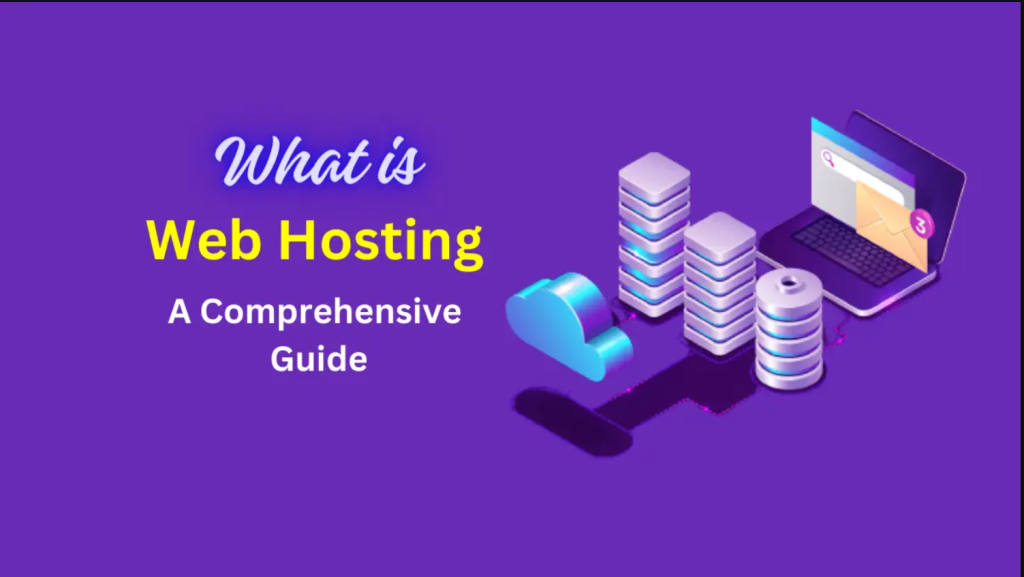In today’s digital era, a strong online presence is crucial for the success of small businesses. Choosing the right type of web hosting depends on factors such as website size, traffic volume, technical requirements, and budget. It’s crucial to assess your needs and select a hosting plan that aligns with your goals One of the key elements in establishing that presence is choosing the right web hosting provider. With a myriad of options available, finding the perfect fit can be challenging. This blog post aims to guide small business owners through the process of selecting the most suitable web hosting service.

Table of Contents
What is Web Hosting
Web hosting is a service that allows individuals or organizations to make their websites accessible on the internet. When you create a website, its files (including HTML, images, videos, etc.) need to be stored on a server. This server is a powerful computer that is connected to the internet 24/7, allowing people around the world to access your website at any time.

Web hosting providers are companies that own and manage these servers. They offer various hosting plans and services to individuals, businesses, or organizations, enabling them to store their website files and make them accessible to the public.
Qualities of the Right Web Hosting services
Selecting the right web hosting service is crucial for the success and performance of your website. Here are key qualities to consider when choosing a web hosting provider:

- Understand Your Business Needs: Before diving into the sea of hosting options, assess your business requirements. Consider factors like website size, expected traffic, and technical requirements. Understanding your needs will help you narrow down the choices and avoid overpaying for unnecessary features.
- Types of Web Hosting: There are various types of web hosting, including shared hosting, VPS hosting, dedicated hosting, and cloud hosting. Each has its pros and cons. Shared hosting is cost-effective but may have limitations, while dedicated hosting provides exclusive resources but comes at a higher price. Evaluate the options based on your business demands.
- Reliability and Uptime:A reliable web hosting service should guarantee minimal downtime. Check the provider’s uptime statistics and read customer reviews to gauge their reliability. Consistent uptime is crucial for ensuring your website is accessible to potential customers at all times.
- Performance and Speed:Slow-loading websites can deter visitors. Opt for a hosting provider with robust server infrastructure, content delivery networks (CDNs), and caching mechanisms to ensure optimal performance. Faster-loading pages not only enhance user experience but also contribute to better search engine rankings.
- Scalability:Small businesses often grow, and your hosting solution should be able to scale accordingly. Choose a provider that allows for seamless upgrades or downgrades based on your evolving needs. This ensures your website can accommodate increased traffic and additional features without disruption.
- Security Measures:Security is paramount, especially when handling customer data. Look for hosting providers that offer SSL certificates, regular backups, and robust security protocols. Consider if the provider includes features like firewalls and malware detection to safeguard your website from potential threats.
- Customer Support: Responsive and knowledgeable customer support is essential, especially for small businesses that may lack dedicated IT staff. Evaluate the support options provided by the hosting company, such as live chat, email, or phone support. Read customer reviews to assess the quality of their support services.
- Cost Considerations:While cost is a significant factor, it should not be the sole determining factor. Compare pricing plans and features across different providers to find the best value for your specific requirements. Be wary of hidden fees and consider the long-term costs associated with your chosen hosting solution.
- Reputation and Reviews: Research the hosting provider’s reputation by reading reviews and testimonials. Consider the experiences of other users to gauge the reliability and quality of the service.
- Free Migration Services: If you’re moving an existing website to a new host, check if the hosting provider offers free migration services. This can save time and effort during the transition.

Conclusion
Selecting the right web hosting for small businesses is a critical decision that can impact your online presence and overall success. By carefully considering your needs, evaluating hosting options, and prioritizing factors like reliability, performance, and security, you can make an informed decision that aligns with your business goals. Remember that a well-chosen web hosting provider is an investment in the future success of your small business.


